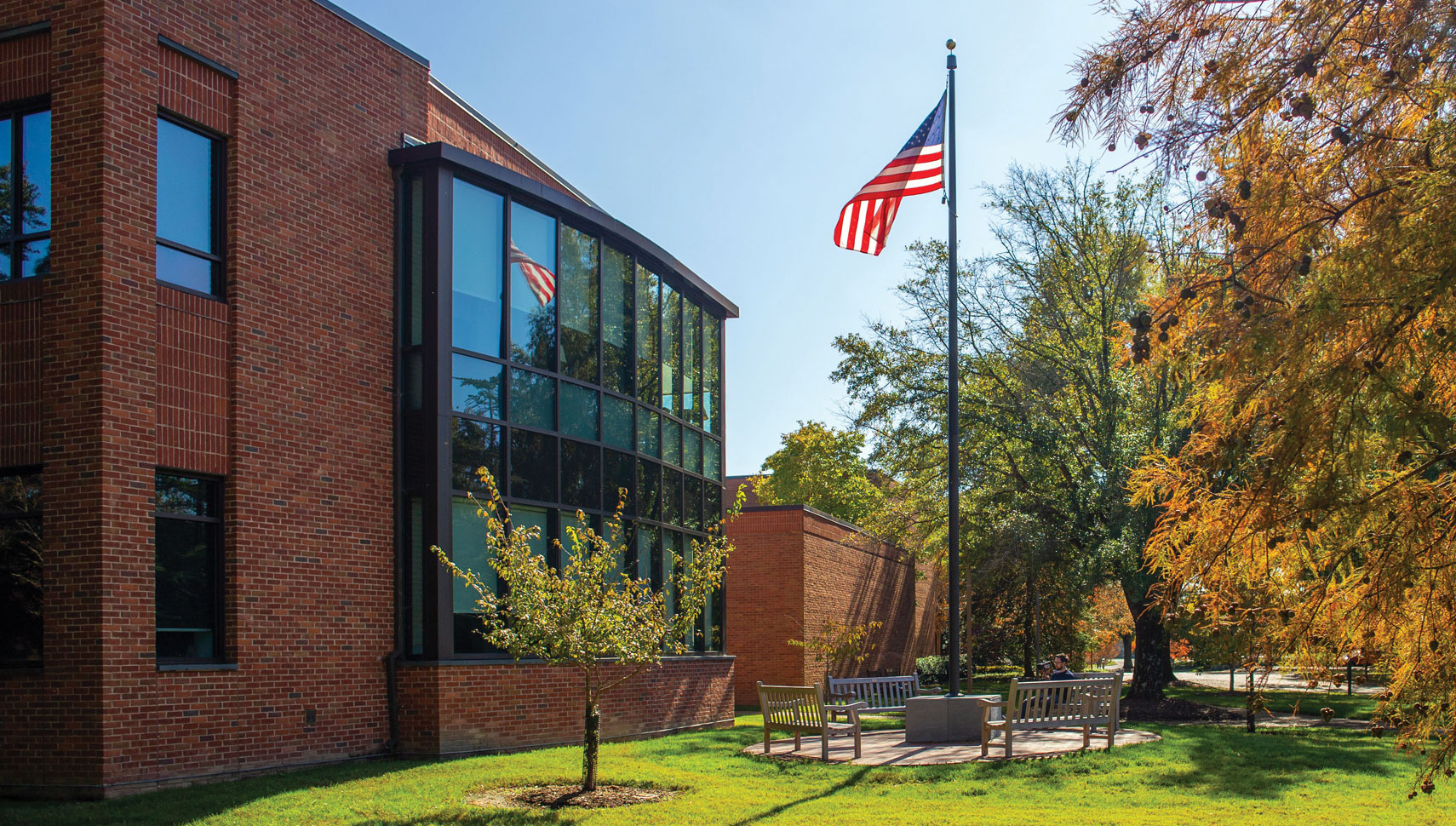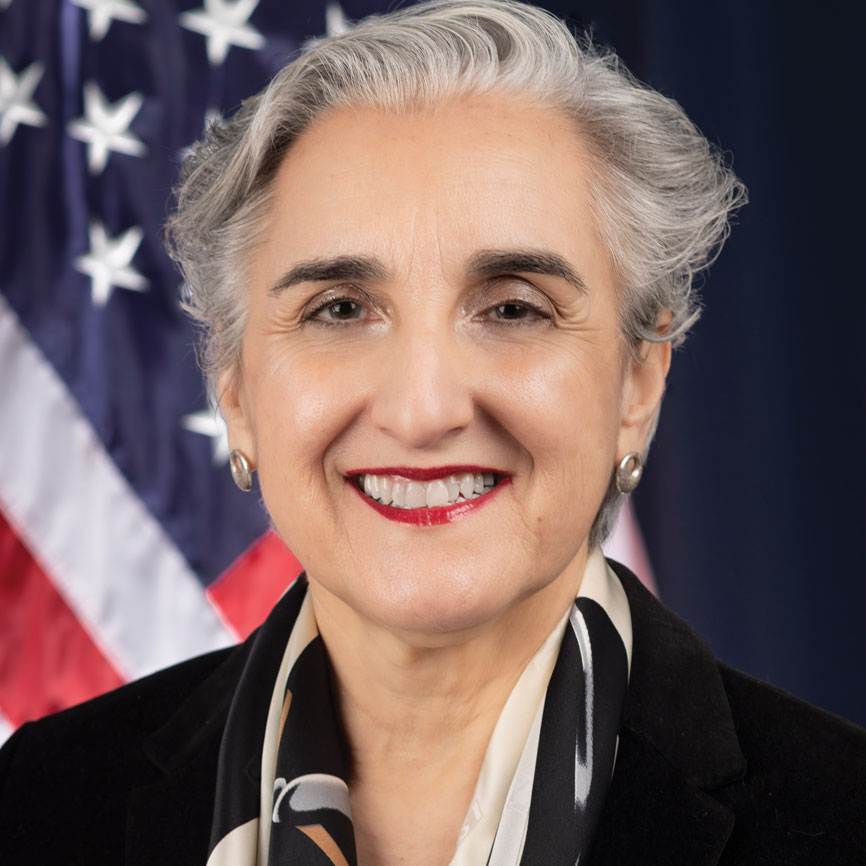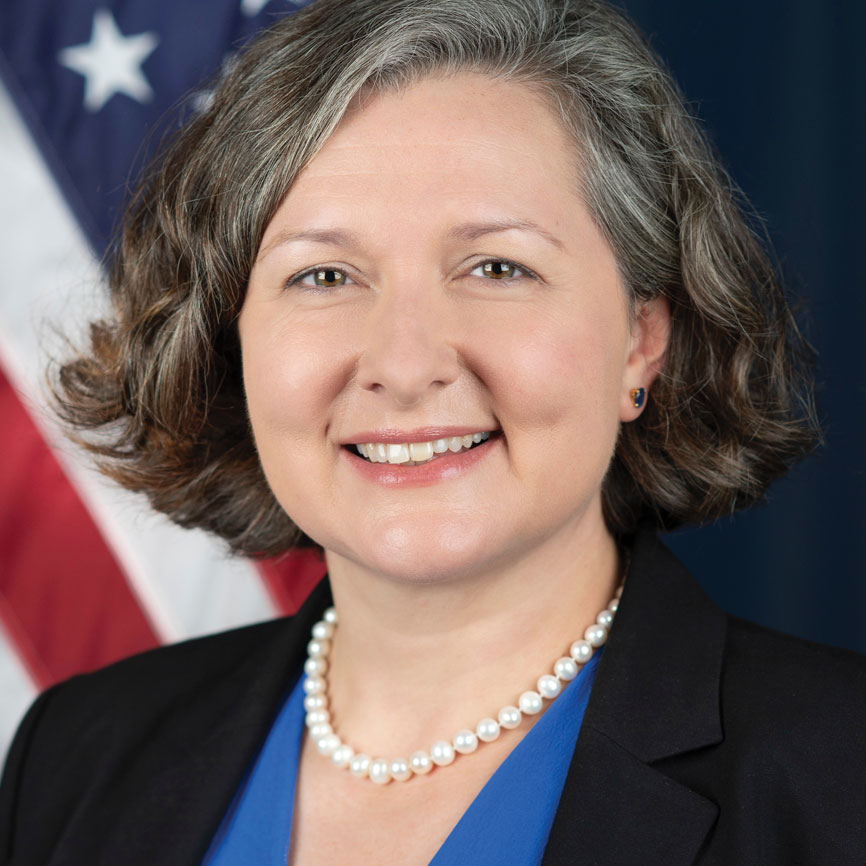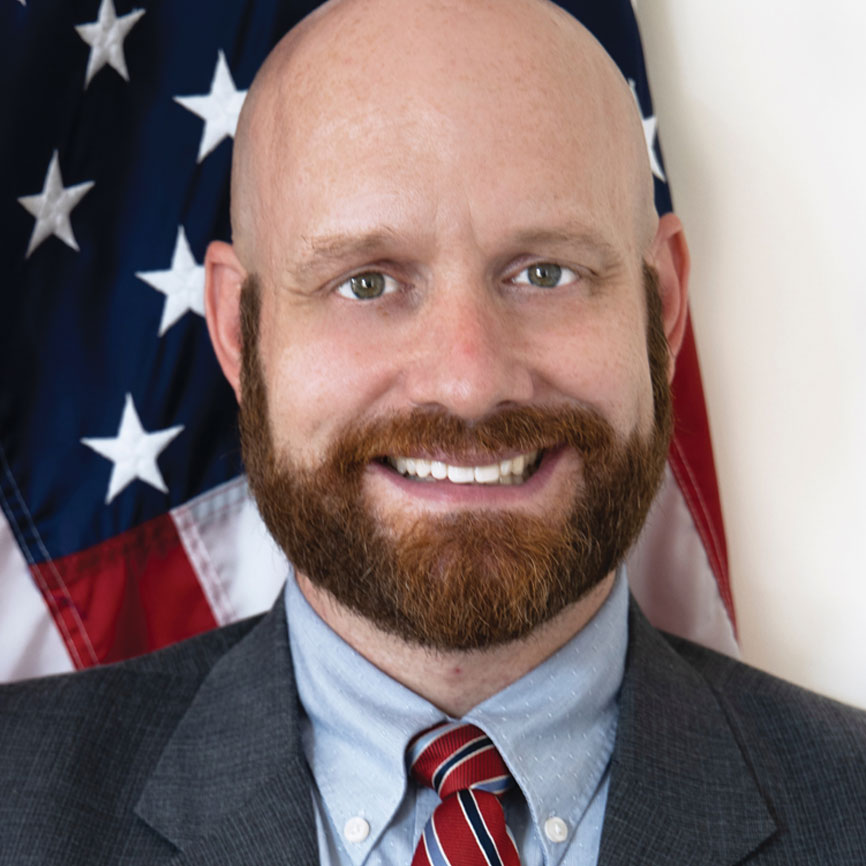From Williamsburg to the World
Three W&M Law School alumni represent the U.S. in France through the foreign service
May 23, 2022
By
Claire De Lisle M.B.A. ’21

Where can your William & Mary degree take you?
All over the world.
That’s been the experience of Colombia Barrosse ’80, J.D. ’85, Elizabeth “Beth” Webster J.D. ’98 and Christopher “Chris” Crawford J.D. ’09. After graduating from W&M Law School, each joined the U.S. foreign service and has represented American interests in a variety of countries. Now, all three are stationed in France: Barrosse as minister counselor for consular affairs in Paris; Webster as consul for Western France in Rennes; and Crawford as consul for Central France in Lyon.
On March 8, they conducted a virtual panel discussion and Q&A with W&M law students about their experiences.

“Many of us from William & Mary become interested in a legal career because we are looking to change things, to make them better, to bring justice, to serve,” Barrosse says. “The foreign service gives you that opportunity. We can be advocates as we progress in our careers for better policy, whether we are talking about immigration issues in an adoption case or the negotiation of a treaty.”
Barrosse was no stranger to living overseas when she came to William & Mary. Her father worked for the U.S. Agency for International Development and their family lived in Latin America until Barrosse was a junior in high school. Looking for an in-state Virginia school with a strong pre-med program and excellent reputation, and charmed by William & Mary’s beautiful campus — “a perfect place to study and to think deeply” — she applied and was admitted.
After graduating with a bachelor of science in biology and a short stint studying physiology as a pre-med student, Barrosse realized her interests lay more in the law, and she returned to W&M for law school. After a summer program working for a solicitor in Exeter, England, gave her a taste of international and admiralty law, she decided her next step would be the foreign service. Thirty-three years later, and at a rank in the foreign service equivalent to that of a two-star general in the military, she says her experience at William & Mary continues to guide her.
“At W&M, we are trained to write concisely and to the audience. Diplomacy is about how to negotiate, how to present an argument that is logical and persuasive. You need those analytical skills to look at information and make connections,” she says.

Webster had wanted to be a lawyer since she was a child. In the summers while she was in law school, a clerkship in Madrid and an internship at the Interfaith Center on Corporate Responsibility in New York City showed her how legal pressure could be used to solve issues of inequality and governance. Inspired to join the foreign service, she has served in Hungary, Turkmenistan, Kazakhstan and the United Arab Emirates in addition to a variety of roles in Washington, D.C. — including NATO-Russia policy officer and foreign policy fellow in a U.S. senator’s office. Her most recent previous position was deputy spokesperson and director of the press operations unit for the Bureau of European and Eurasian Affairs. Webster has found her legal experience to be essential in her foreign service career. Especially in her early roles, she sometimes found herself the only person with a law degree in the room. As a young woman new to a country, having an American law degree sometimes helped her establish credibility. “I’m very careful to tell people I’m not an attorney now. But people inevitably know if you have a legal education, you understand how to approach problems in a way that will keep you and them out of trouble,” she says. “It isn’t always about having the right answer, it’s about asking the right questions and knowing how to get the answer.”
Her roles have not been without their challenges. Like her colleagues, she represents 370 million Americans who have many different perspectives and she must advocate for policies on behalf of the U.S. executive branch, with policies determined by the administration.
“How do you embody the best of the U.S. and acknowledge that there are things about us that are really problematic for other countries, and that there are aspects of our history that are difficult to talk about?” she says. “This challenge is the essence of patriotism in many ways — to acknowledge this but present the best of who we are as a country, and that’s the challenge that I wake up every morning motivated to try to meet.”
Crawford came to William & Mary Law School after serving in the U.S. Army, including a tour in Iraq, and then working as an Air Force law clerk, for a nongovernmental organization in Cambodia and as a volunteer in central Brazil. He was always interested in international law and realized he would not be content working at a law firm stateside in the long term.

“I graduated from W&M, took the bar exam, flew home, and the next day my daughter was born. When we got home from the hospital, I got an invite into the foreign service,” he says.
In 12 years, he has served in Timor-Leste, Paris, Kabul, Sydney and now Lyon. His next posting, beginning this summer, is in Washington, D.C.
As head of the small consulate in Lyon, his day-to-day schedule can be as varied as writing cables to Washington, touring a hydrogen factory, hosting a press event for a famous author and meeting with students. It’s very different from the work he was doing in Sydney, which was mostly contracts (for example, arranging for then-Vice President Joe Biden to visit) and his responsibilities in Kabul, Afghanistan, which were related to internal management of 500-600 diplomats and over 7,000 security staff and contractors. As is typical, he has changed postings every one to three years.
“One of the things I love most about the foreign service is change — every role is different, but you also have a lot of job security,” he says. “I can raise a family while combining the love of my country with the love of getting to know other places and cultures.” All three alumni encourage current students and alumni to apply to join the foreign service, if it is of interest to them.
“If you are an intellectual omnivore and just love learning, there are few careers that give you such a breadth and a scope to learn about so many different things,” says Webster. “Though we change jobs every few years, there’s a continuity and an expectation that we’ll build and grow with each. What seems on paper to be disparate experiences is part of a larger whole of helping make better policy and serving our country.”